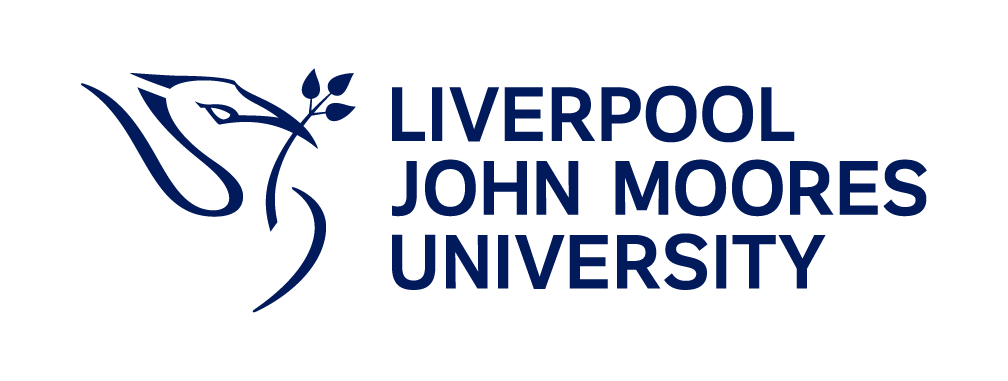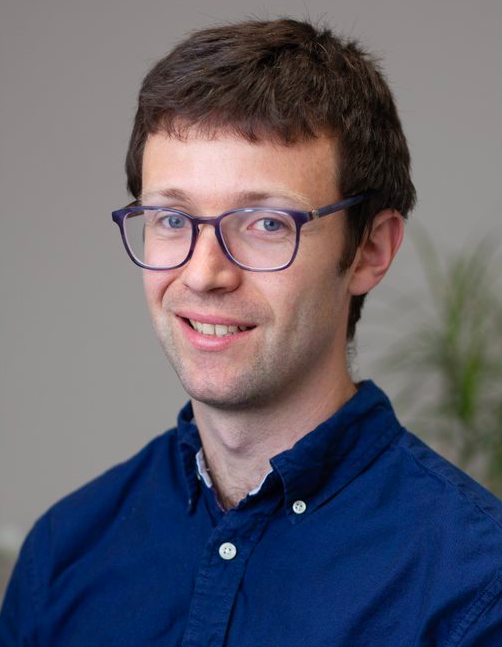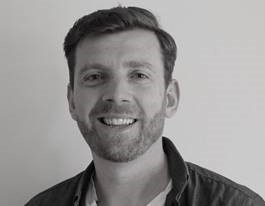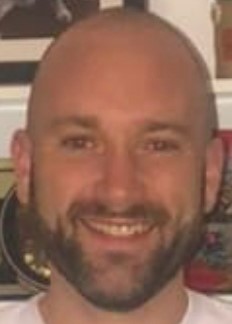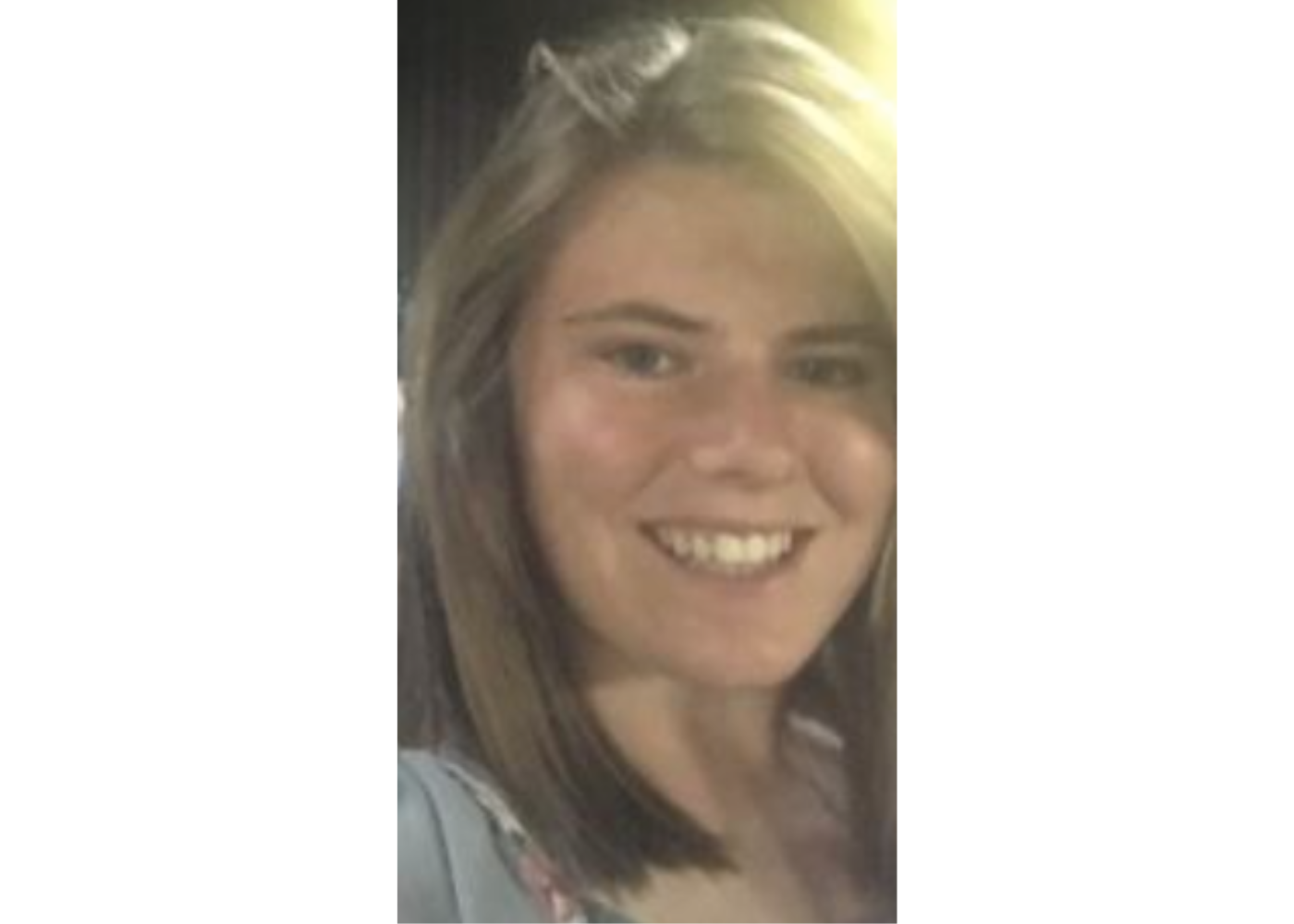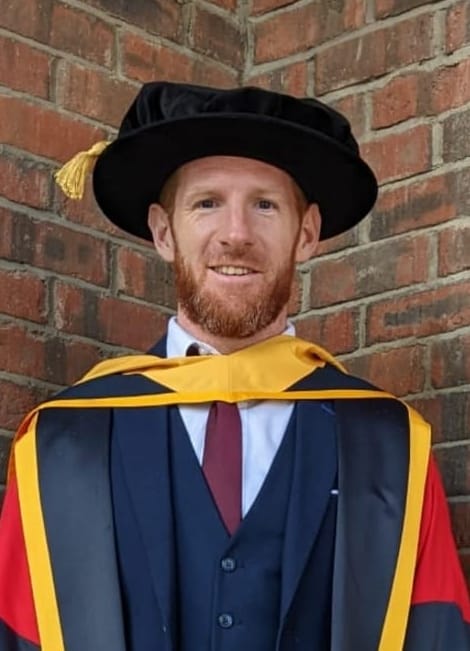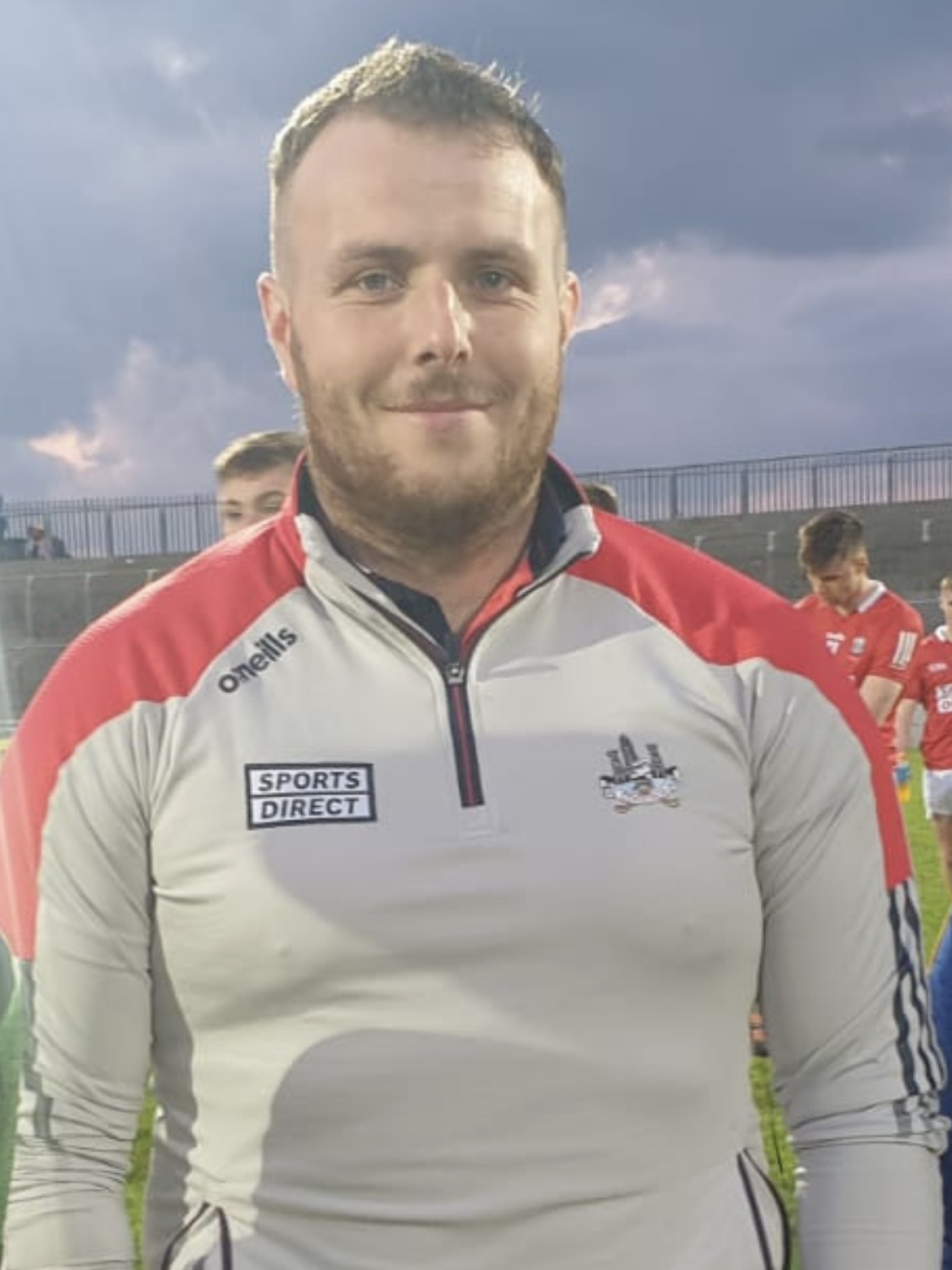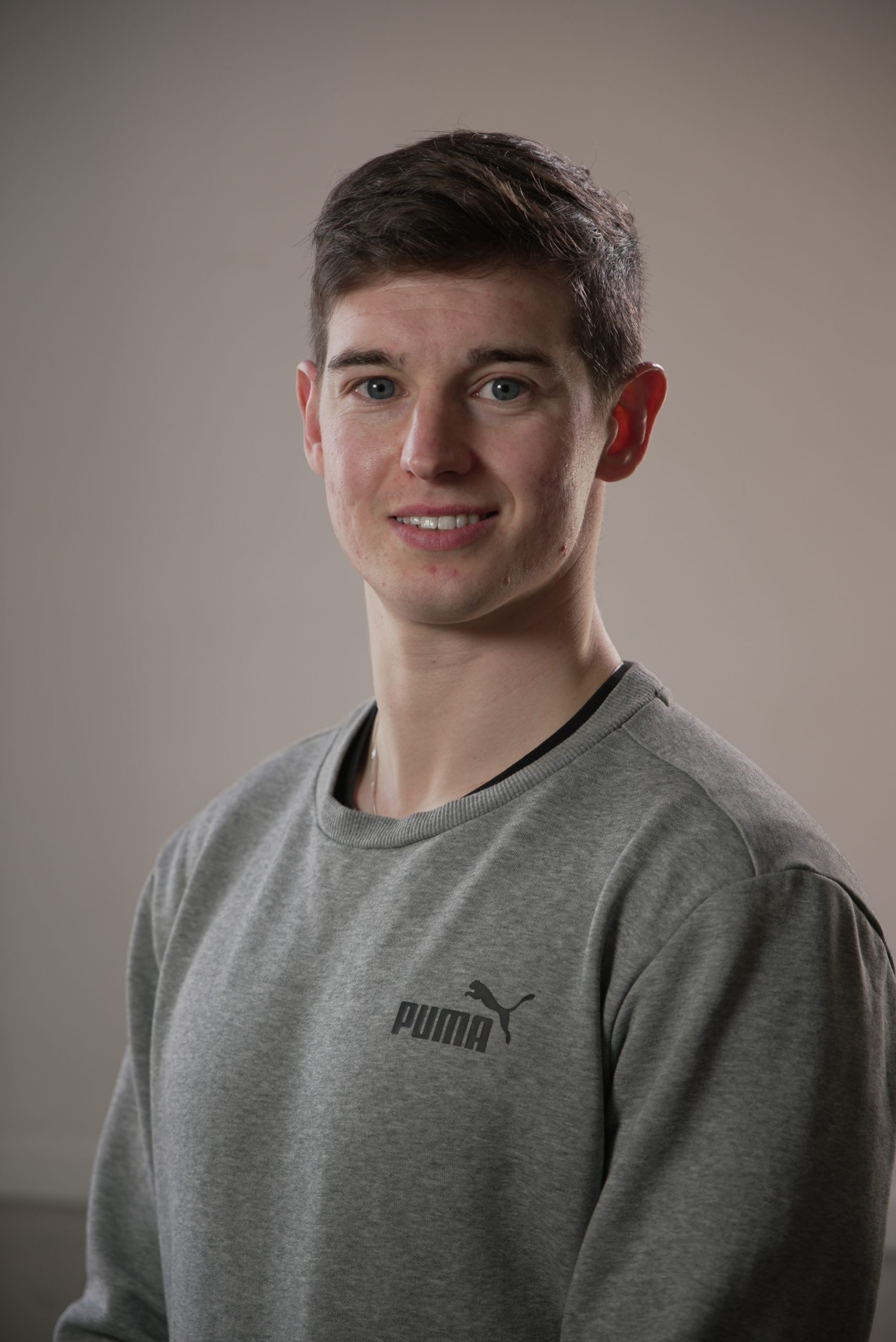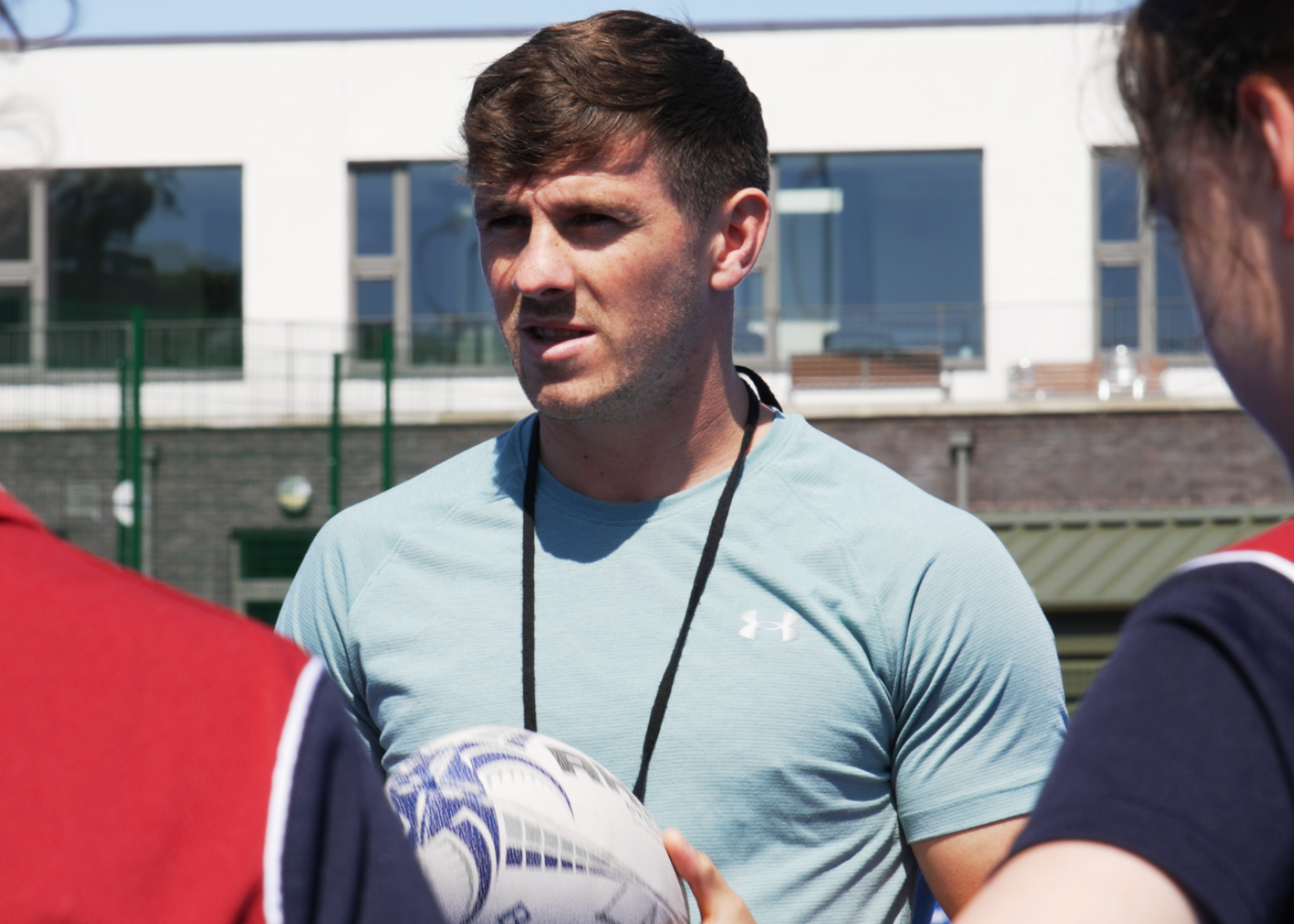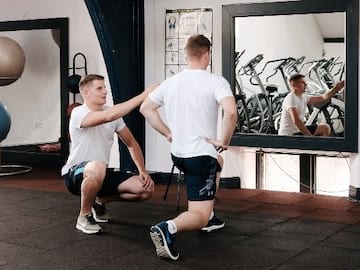Course Details
This BA (Hons) in Physical Education degree aims to develop your critical understanding of physical education, through theoretical, practical and work-based learning. You will have the opportunity to qualify and work in professional sports coaching and pursue PE teaching with our MSc Physical Education, PGCEi & QTS Route.
Level
UndergraduateQualification
Honours Degree| Course | Delivery Mode | Start Date | Duration | |
|---|---|---|---|---|
| BA (Hons) Physical Education |
In-person Weekdays
|
30th September 2024 | 3 years | |
| BA (Hons) Physical Education |
Blended Learning
|
5th October 2024 | 3 years |
Overview
What will I study during this BA (Hons) Physical Education course?
Contemporary content for modern physical education
Developed in 2021, this degree includes relevant and up-to-date content that reflects the context of physical education in modern society. For example, the module Contemporary Issues in PE covers topics such as race, technology, social media, gender, and historical and philosophical concepts.
You will also learn about the underpinning principles of sports science as well as practical learning and teaching skills relating to work as a physical education teacher or sports coach.
Study gymnastics, dance, games athletics, aquatics and adventure activities
The fundamental components of the revised and updated PE curriculum in Ireland (e.g. gymnastics, dance, games athletics, aquatics and adventure activities) are taught. You will develop critical consideration on national and international policy and curriculum design in PE. The degree provides you with a strong foundation in motor development, psychology, sociology and physiology.
You will develop your applied teaching, lesson planning, communication, assessment and reflective practice skills through extensive work-based learning and work-related learning activities.
-
Personal and Professional Development 1 (20 credits)
This module aims to introduce students to the necessary skills, conventions and personal development required for working at level 4. This module is a key foundation for all other modules delivered at level 4.
After completing the module the student should be able to:
- Inform their own development through reflection on becoming an effective learner
- Demonstrate appropriate strategies for accessing, reading and evaluating information
- Reflect upon personal development and career-planning through undertaking a contextualised physical education placement
-
Psychology 1 (20 credits)
This module introduces students to the applied field of sports psychology and its application to physical education. Students will learn psychological principles and theories that they can use to explain behaviour within their domain of physical education.
After completing the module the student should be able to:
- Illustrate the key principles of psychology and the relationship with Physical Education
- Demonstrate how key theories of motivation link to student engagement in Physical Education.
- Demonstrate knowledge of methods used to evaluate and assess psychological characteristics in a physical education setting.
-
Contemporary Issues in Physical Education 1 (20 credits)
This module aims to develop a conceptual understanding of a broad range of issues in physical education and sport. Students will analyse these issues using philosophical and sociological perspectives.
After completing the module the student should be able to:
- Evaluate the significance of Physical Education and sport in contemporary society
- Identify a range of social issues and concepts relating to Physical Education and sport
- Examine social issues and concepts in Physical Education and sport using sociological perspectives
-
Physiology 1 (20 credits)
The aim of this module is for individuals to develop an understanding of the physiological developments, principles and energy systems required in relation to practical performance to support physical education. Individuals will also develop an awareness of the different stages of physical development through infancy, childhood, and adolescence. An understanding of theoretical knowledge and application will support the ability of individuals to devise and deliver appropriate practical sessions.
After completing the module the student should be able to:
- Demonstrate knowledge of exercise and physiology principles that support practical learning experiences and development.
- Understand the relationship between physiology and physical performance during infancy, childhood, and adolescence.
- Deliver practical learning activities that include exercise physiology principles and development, relevant to age and the physical education curriculum.
-
Applied Pedagogy 1 (20 credits)
Module Aim:
This module will enable students to consider and appreciate how physical education can provide a positive learning environment for the development of a wide range of skills and attributes. These include movement, sport-specific skills, leadership, and teamwork. This module will allow for reflection on how pedagogy can impact on the physical, affective, cognitive, and social development of individuals.
Learning Outcomes:
After completing the module the student should be able:
1 Critically appraise theories of teaching and learning commonly deployed in a
physical education context and discuss factors that influence the learning process.2 Apply pedagogical theories to varied Physical Education learning environments.
3 Critically evaluate safe practice conventions to practical activities and identify
appropriate adaptations for inclusive PE practice for students with disability. -
Introduction to Skill Acquisition (20 credits)
This module will introduce students to key concepts related to skill acquisition and motor development throughout childhood and adolescents. It will also illustrate how these concepts can be applied in a range of physical education environments such as gymnastics, dance, games, and athletics.
After completing the module the student should be able to:
- Describe key concepts of skill acquisition and stages of motor development
- Apply skill acquisition concepts to individual in physical activities in a range of artistic, technical and creative contexts such as gymnastics, dance, team sports, athletics and games
-
Personal and Professional Development 2 (20 credits)
This module allows students to experience, observe, contribute, and apply professional principles within a work-based learning community environment.
After completing the module the student should be able to:
- Reflect upon your own personal and professional development in relation to a work-based placement
- Demonstrate organisational awareness gained through a work-based placement and appreciate and review organisational structures within the workplace
- Apply safeguarding and child protection conventions and safe-practice procedure in relation to the work-based learning environment
-
Applied Pedagogy 2 (20 credits)
Module Aims:
This module will allow for critical reflection on how pedagogy can affect the physical, affective, cognitive, and social development of individuals. Students will be introduced to physical education curriculum models and how they can used in classroom settings. Models such as Sport Education, Cooperative learning and Adventure education will be explored. Students will explore these curriculum models through the lens of a variety of different content strand areas including Adventure activities, aesthetic activities, and athletics. Students will consider how these pedagogical approaches can be practically used to enhance teaching and learning in the PE classroom.
Learning Outcomes:
1. Critically evaluate pedagogical models and apply them to practical teaching situations
2.Plan and deliver adventure, aesthetic and athletics activities in a pedagogically appropriate manner
3. Deliver positive physical education learning environments that enable young people to develop physical, affective, cognitive, and social skills
4. Use qualitative research methods to develop further knowledge of curriculum models -
Research Design (20 credits)
This module will develop students’ understanding of a range of research methodologies and methods typically used within social science research. Students will create a research project proposal that will prepare them for further research study in level 6.
After completing the module the student should be able to:
- Explain methodological approaches to social science research
- Design and plan a research proposal
- Analyse and evaluate the use of teaching and learning and assessment resources in physical education across the phases of learning
-
Contemporary Issues in Physical Education 2 (20 credits)
This module aims to develop a conceptual understanding of physical education and sport within society, by considering the influence of external partners and examining the current community and National strategies and initiatives that impact on the development of young people and analyse these from sociological perspectives.
After completing the module the student should be able to:
- Apply sociological perspectives to demonstrate an understanding of contemporary issues in physical education.
- Reflect on and analyse the structures and influential partners that contribute to the development of opportunities for young people in physical education.
- Examine and evaluate current community and National strategies and initiatives and their impact upon young people in physical education.
-
Physical Education Teacher Education 1 (20 credits)
This option module aims to provide students with the opportunity to understand and analyse the role of physical education in terms of planning, teaching, learning and assessment in the primary school years age range.
After completing the module the student should be able to:
- Reflect on and analyse physical education planning and curriculum across the phases of learning
- Develop an appreciation of teaching, learning and assessment approaches and assessment in physical education across the phases of learning
- Analyse and evaluate the use of teaching and learning and assessment resources in physical education across the phases of learning
-
Skill Acquisition 2 (20 credits)
This module aims for students to develop an understanding of how to implement non-linear pedagogy to improve motor skills and psychosocial skills during physical education lessons. This will be based upon a dynamical systems framework and include a constraints-based approach to teaching using, games and athletics, adventure activities and aquatics to explore physical literacy development.
After completing the module the student should be able to:
- Evaluate models of skill acquisition
- Design physical education activities which meet the needs of all learners
- Analyse practical activity from a skill acquisition perspective
-
Make it Happen – Project Plan (10 credits)
The aim of this module is to prepare to undertake a community physical education activity project as a team and in doing so develop an understanding of how leadership, management and teamwork skills have the potential to be effectively applied.
After completing the module the student should be able to:
- Construct a rationale and action plan for a ‘make it happen’ community physical education activity project.
- Apply leadership, management, and teamwork principles in the preparation of a ‘make it happen’ physical education activity project, within a school or community environment.
-
Applied Pedagogy 3 (20 credits)
Module Aim:
This module aims to critically analyse the needs and performance of learners. By providing students with a conceptual understanding of pedagogical and talent development theory.
Learning Outcomes:
After completing the module the student should be able to:
1 Critically evaluate talent development theory
2 Use ICT to critically analyse more advanced skills, tactics, or concepts in physical
education activities.3 Using established learning theories, design solutions to pedagogical issues
-
Physical Education Teacher Education 2 (20 credits)
This option module will provide students with the opportunity to critically evaluate physical education (12-18) in relation to teaching, learning and assessment.
After completing the module the student should be able to:
- Critically research and evaluate the effects of transition on pupil’s performance and personal development in physical education.
- Critically evaluate methods used to ensure progression and continuity with regards to teaching, learning and curriculum planning in relation to physical education.
- Critically evaluate the current philosophy behind the provision for learners by associated agencies within the 12-18 phase of education in relation to personal experience.
-
Research Project (40 credits)
This module aims to build on students’ research skills gained at levels 4 and 5 of the programmes and will rigorously investigate an issue from a physical education or sport in the form of a dissertation.
After completing the module the student should be able to:
- Synthesise their knowledge and apply it to the chosen area of study.
- Implement the range of research skills to conduct independent research relevant to their chosen topic, by selecting an appropriate approach and methodology, and by utilising a broad range of primary and secondary sources.
- To develop understanding, knowledge, and critical analysis of the area of research selected.
-
Contemporary Issues in Physical Education 3 (20 credits)
Module Aim:
This module aims to develop a deeper understanding of the role physical education plays in promoting physical activity, health, and well-being of young people. Students will also critically reflect on the challenges, choices, and constraints that young Page 2 of 3 people experience within the complexity of the educational environment and wider society using a range of philosophical and sociological perspectives.
Learning Outcomes:
After completing the module the student should be able to:
- Critically examine the processes and structures in physical education that contribute to the development of physical activity in young people.
- Reflect on and critically analyse the provision, policy and practice of Physical Education and the impact this has on young people.
- Critically examine the role of physical education in promoting health and well-being.
-
Make it Happen Implementation (10 credits)
The aim of this module is to initiate and complete a community physical education activity project as a team. The module also aims to critically evaluate how leadership, management and teamwork skills impacted on a community physical Page 2 of 3 activity project.
After completing the module the student should be able to:
- Critically evaluate an innovative physical education activity project within a school or community.
- Critically reflect on their personal development.
Who will I learn from?
Programme Manager
Personal Academic Tutor
You will learn from a range of applied practitioners including primary and secondary school PE specialists, psychologists, sports and exercise scientists.
Each student is assigned a personal academic tutor to support you throughout your learning journey. They are available to offer you telephone and email support at any time. You can arrange to meet them for further one to one guidance at a time convenient to you.
Many of our past graduates have found it is the opportunity to ask a simple question, seek direction and submit a draft of their assessment that supported them most to successful completion. Emailing your tutor at any stage during your programme to ask a query or submit a draft of your assessment supports you to achieve your personal best throughout your studies with Portobello.
This level of one to one support is a particular benefit to choosing Portobello as your Institute of choice to complete your studies.
Programme Manager
Personal Academic Tutor
You will learn from a range of applied practitioners including primary and secondary school PE specialists, psychologists, and sports and exercise scientists.
Each student is assigned a personal academic tutor to support you throughout your learning journey. They are available to offer you phone and email support at any time. You can arrange to meet them for further one-to-one guidance at a time convenient to you.
How will I learn?
In-person weekday delivery offers you the opportunity to study with a more traditional schedule with lectures delivered on-site in Portobello during weekdays. Typically, those lectures are generally scheduled over 2 – 2 ½ days between Tuesday and Thursday.
Blended Learning is essentially the same, with a blend of online and on-site lectures taking place at the weekends. This makes it easier for you to study while working full-time. It also makes studying for a degree more accessible if you live outside of Dublin.
With both delivery modes, there will be lectures you need to attend on-site due to the nature of the content – practical skills etc. All online-only lectures are recorded for you to catch up later. Where lectures are delivered onsite – these will simultaneously be delivered online and will also be recorded so you can customise your learning journey – attend on-site, online, or catch up later.
Delivery Mode
You have the option to study this programme in-person on weekdays. This means 12- 16 hours of lectures per week. Portobello ensures scheduling of course timetables is considerate of students travel and accommodation arrangements, part-time working and study-life balance. The course timetable is condensed to be delivered with onsite classes 2-3 days per week over 2 semesters. Examinations are held at the end of each semester.
There is a fully equipped gym with strength and conditioning equipment available for use as part of your course.
Tutor Support
You can email your tutor at any stage during the module to ask a simple query and there will be scheduled opportunities to submit a draft of your assignment. Our programme management team are always available to meet you or offer you telephone and email support. For more information about our team, click here. Many of our past graduates have found it is the opportunity to ask a simple question, seek direction and submit a draft of their assessment that supported them most to successful completion.
This level of one-to-one support is unique and is a particular benefit to choosing Portobello Institute. We have invested in a team of programme managers and tutors who are experienced sports therapists and clinicians as well as knowledgeable educators. They are available to assist you at every stage of this programme and support you to achieve your personal best.
Online Learning Portal – ePortobello
During the induction seminar, we will show you how to navigate and find what you need with all of the information you need to complete this programme uploaded on to ePortobello. The content of this programme is set out in an easy to follow format with a combination of notes, articles, podcasts and other materials that will help you to understand the subject and complete your assessments.
Course Structure
The course is delivered over a three academic years with entry points in September and February each year.
In first year, you will complete the core modules which will introduce you to this programme of study and provide you with essential skills that will aid your study for the course of your degree.
In second year, you will complete a total of six modules, three 20 credit modules each semester.
In third year, you will complete five modules and your final year dissertation project in the area of Physical Education and your work placement.
Course Schedule - September 2024
The first academic year of this course runs from 30/09/2024 – 24/05/2025
Classes are generally delivered 2-3 days per week and are scheduled mid-week where possible.
The second and third academic years of this course will run on a similar schedule in 2025 and 2026.
A FLEXIBLE LEARNING JOURNEY
Classes are delivered on scheduled Saturdays or Sundays. Theory classes are delivered simultaneously onsite and online by Webinar whilst practical classes are delivered on site.
Webinars are recorded so you may catch up later if you are unable to attend offering you further flexibility during your learning journey. There are activities to be completed in the virtual learning environment however these can be completed in your own time.
An exact schedule is available here.
Real Life Learning Opportunities
Work Placement
As part of your BA (Hons) Physical Education you will gain important practical skills and experience through placement. While school settings are recommended, flexibility will be provided to students to also complete placements in other related contexts such as sport clubs and community settings. Placement will take place in year 1,2 and 3. In year 1, your role will be primarily an observer and assistant, building up to year 3 where you will be independently leading classes. Year 1 placement will take place over 5 days, year 2 over 15 days and year 3 will encompass two separate placements totaling 15 days or an equivalent number of hours.
This allows you to put into practice the skills you have learnt in class. If you are interested in progressing to a Masters in Education and becoming a PE teacher, our graduates have found this first-hand experience and insight into physical education in schools gave them advantage when preparing for interview and subsequent successful entry to Masters programmes.
How will I be assessed?
SMART assessments – we use a range of assessments for each module designed to support a broad range of learning styles, giving you the opportunity to excel.
The primary aim of the varying assessment styles is to support you to demonstrate your knowledge of theory and practical as a result of a range of assessments.
Group assignments will add another dimension to your learning experience – they will help you to learn to work in teams and will provide you with benefits of peer learning.
All these methods are seeking to support you to combine theory with scenario-based learning and encourage and guiding you for future implementation into your career as a physical education teacher.
Delivery Mode
Blended learning takes the schedule of a traditional face-to-face learning programme and restructures it to reduce the contact tuition time by introducing more online learning together with one-to-one tutor support.
This mode of delivery includes contact tuition and web-based e-learning sessions. The e-learning platform is interactive including recorded sessions, webinars with weekly content and assigned tasks to themes and topics. This mode of delivery will usually include a minimum of one weekend seminar per month attendance required. This type of delivery is generally applied to courses with a practical skills element such as this BA (Hons) Physical Education and allows you to work full-time and balance the requirements of a degree programme with home and work.
There is a fully equipped gym with strength and conditioning equipment available for use as part of your course.
Tutor Support
You can email your tutor at any stage during the module to ask a simple query and there will be scheduled opportunities to submit a draft of your assignment. Our programme management team are always available to meet you or offer you telephone and email support.
This level of one-to-one support is unique and is a particular benefit to choosing Portobello Institute.
Online Learning Portal – ePortobello
During the induction seminar, we will show you how to navigate and find what you need with all of the information you need to complete this programme uploaded onto ePortobello. The content of this programme is set out in an easy-to-follow format with a combination of notes, articles, podcasts and other materials that will help you to understand the subject and complete your assessments.
Course Structure
The course is delivered over three academic years with entry points in October and February each year. There are supported seminars held at weekends with an example schedule available here. There will be online activities to complete also but these can be completed in your own time.
In year one, you will complete four year-long core modules which will introduce you to the programme of study and provide you with essential skills that will aid your study for the course of your degree.
In year two, you will complete a total of five modules, two year-long core modules which run for both semesters, alongside two additional modules each semester. You will have a choice of certain modules to study which will be specific to your area of interest.
In year three, you will complete five modules, three core year-long modules that run for both semesters, as well as an additional module each semester. You will have the option to choose a module related to your area of interest to complete in first semester.
Course Schedule - October 2024
Semester 1
Semester 1 runs from 05/10/24 – 24/05/25
A FLEXIBLE LEARNING JOURNEY
Classes are delivered on scheduled Saturdays or Sundays. Theory classes are delivered simultaneously onsite and online by Webinar whilst practical classes are delivered on site.
Webinars are recorded so you may catch up later if you are unable to attend offering you further flexibility during your learning journey. There are activities to be completed in the virtual learning environment however these can be completed in your own time.
Real Life Learning Opportunities
Work Placement
As part of your BA (Hons) Physical Education you will gain important practical skills and experience through placement. While school settings are recommended, flexibility will be provided to students to also complete placements in other related contexts such as sports clubs and community settings. Placement will take place in years 1, 2 and 3. In year 1, your role will be primarily an observer and assistant, building up to year 3 where you will be independently leading classes. Year 1 placement will take place over 5 days, year 2 over 15 days and year 3 will encompass two separate placements totaling 15 days or an equivalent number of hours.
This allows you to put into practice the skills you have learnt in class. If you are interested in progressing to a Masters in Education and becoming a PE teacher, our graduates have found this first-hand experience and insight into physical education in schools gave them an advantage when preparing for interviews and subsequent successful entry to Masters programmes.
How will I be assessed?
SMART assessments – we use a range of assessments for each module designed to support a broad range of learning styles, allowing you to excel.
Career prospects
Pathway to PE teaching
Portobello Institute offers pathways to becoming a qualified PE teacher with this three-year level 8 BA (Hons) in Physical Education for those who are starting their journey.
Others who may already have a sports or teaching qualification may gain a Graduate Diploma in Physical Education to continue on the pathway to PE Teaching.
To become a teacher we offer an MSc in Physical Education combined with the Postgraduate Certificate in Education International & QTS package. QTS is a UK teaching qualification, application for registration with the Teaching Council of Ireland can subsequently be made through the “qualified abroad route” and is reviewed by the council on a case-by-case basis.
Alternatively, many of our past students have used qualifications gained from Portobello Institute to gain entry to other universities to study post-graduate qualifications for PE teaching.
Who else has studied this degree?
Related Courses
MSc Physical Education
Delivered through blended learning, this MSc Physical Education provides you with an in-depth and relevant focus on the concepts and the key skills underpinning physical education theory and pedagogy.
MSc Physical Education & PGCEi
Delivered over 2 years, this combined programme of an MSc Physical Education, and PGCEi offers you the opportunity to develop your critical understanding of physical education, through theoretical, practical and work-based learning experiences and further develops your pathway towards PE teaching.
Speak to an expert
Your Consultant
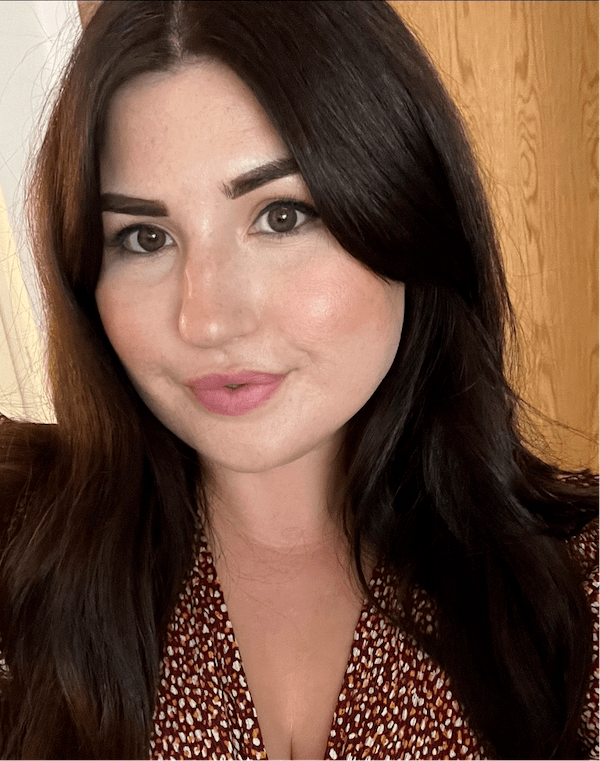
Hannah Meade
My name is Hannah, I am the Sports Admissions Advisor here at Portobello Institute. I can be contacted directly on 01 892 0029 or emailed at [email protected].
I am your “go-to” person in terms of support and guidance as you navigate through the different courses and career paths within the Sports industry. I help find the right course fit for you that aligns with your career goals and aspirations. During this exciting time, it’s important that you have a dedicated and consistent support on the other end of the phone, and I am that person for you. Feel free to get in touch!
How do I apply?
Entry to this course is by direct application to the college
With a Leaving Certificate
Leaving Certificate requirements – Minimum of grade C or O6 in ordinary level Biology* or Physical Education, English and Maths with a pass in 3 other subjects.
Sitting the Leaving Certificate in 2024
Students may apply and be granted a “Conditional Offer” prior to completing the Leaving Certificate.
Step 1 – Submit application
Step 2 – Review of application and confirmation of eligibility criteria and entry requirements
Step 3 – Conditional Offer issued on the basis of successful achievement of LC requirements
Step 4 – Confirm acceptance of a place and pay deposit as detailed
Places cannot be held open for applicants awaiting leaving certificate results, however, should a student accept a place and then choose not to progress with this course having received a CAO offer, a refund of 75% of fees paid will be made. Refunds must be requested in writing within 48 hours after the first-round offers have been made. This will only be accepted by emailing [email protected]. Evidence of CAO offer acceptance must be provided along in order to apply for a refund.
Applicants who have previously completed the Leaving Certificate;
Minimum of grade C or O6 in ordinary level Biology* or Physical Education, English and Maths with a pass in 3 other subjects.
*Applicants who do not hold LC Biology or Physical Education, are required to undertake the QQI level 5 Anatomy & Physiology and use this award in place of LC Biology. This course is available through Portobello Institute, further information available here.
Without a Leaving Certificate
Students are accepted on to this programme without a leaving certificate however applicants must meet one of the following criteria;
- QQI level 5 major award containing a biology subject
- ITEC level 2 award containing anatomy & physiology
- An undergraduate degree in another subject
- QQI Level 5 Anatomy & Physiology – available through Portobello Institute
- Mature entry at 21 years. Mature students are reviewed on a case by case basis and entry is via interview. Those without a grounding in science and a previous academic qualification in science or biology, must complete QQI Level 5 Anatomy & Physiology or equivalent. This course is available through Portobello Institute, further information available here.
- Equivalent qualifications with biology/anatomy & physiology module
Application Process
Step 1
Complete the online application form.
Step 2
Applicant’s application will be reviewed by the Portobello enrolment team.
Step 3
Applicant will be contacted by the Portobello enrolment team to confirm place on the course or look for more information.
Applicants who do not meet the criteria, may be required to attend an interview with an offer of a place on the programme issued following assessment of suitability. Applicants confirm acceptance of offer by returning acceptance form.
Please note places on this course are only confirmed once tuition fees have been received.
Fees & Payment Options
Note: All payments for this course are made to Portobello Institute
Fees
Course Price
Year 1 base fee
Exam Body Reg. Fee
Overall Course Price
Total amount due
Easy Payment Plan
Payment Option 1
40% deposit payment (€2,312.00), followed by 6 scheduled payments on the first of each month, commencing the 1st of the month after the start date of the course. Includes one off instalment fee of €295.
- €578.00 due in month 1
- €578.00 due in month 2
- €578.00 due in month 3
- €578.00 due in month 4
- €578.00 due in month 5
- €578.00 due in month 6
Easy Payment Plan Option 2
40% deposit payment (€2,194.00) due on application of your course. Final balance (€3,291.00) due 7 days before the course start date.
Note: All payments for this course are made to Portobello Institute
Fees
Course Price
Year 1 base fee
Exam Body Reg. Fee
Overall Course Price
Total amount due
Easy Payment Plan
Payment Option 1
33% deposit payment (€1,831.50), followed by 8 scheduled payments on the first of each month, commencing the 1st of the month after the start date of the course. Includes one off instalment fee of €365.
- €464.81 due in month 1
- €464.81 due in month 2
- €464.81 due in month 3
- €464.81 due in month 4
- €464.81 due in month 5
- €464.81 due in month 6
- €464.81 due in month 7
- €464.81 due in month 8
Available Courses
| Course | Delivery Mode | Start Date | Duration | Fees Per Year | |
|---|---|---|---|---|---|
| BA (Hons) Physical Education |
In-person Weekdays
|
30th September 2024 | 3 years | €5,485.00 | |
| BA (Hons) Physical Education |
Blended Learning
|
5th October 2024 | 3 years | €5,185.00 |
Apply
Hooray! One small step for you, one giant leap for your future! Enter your email and you will be redirected to our application platform, where you can complete your application in your own time. Here's what to expect:
- Enter your email, name and mobile phone number
- You'll be redirected to our Application platform
- Start your application
- Choose your preferred payment option
(No payment required at this stage) - Submit your application
- One of our course advisors will review and be in touch
Apply
Hooray! One small step for you, one giant leap for your future! Enter your email and you will be redirected to our application platform, where you can complete your application in your own time. Here's what to expect:
- Enter your email, name and mobile phone number
- You'll be redirected to our Application platform
- Start your application
- Choose your preferred payment option
(No payment required at this stage) - Submit your application
- One of our course advisors will review and be in touch
Apply
Hooray! One small step for you, one giant leap for your future! Enter your email and you will be redirected to our application platform, where you can complete your application in your own time. Here's what to expect:
- Enter your email, name and mobile phone number
- You'll be redirected to our Application platform
- Start your application
- Choose your preferred payment option
(No payment required at this stage) - Submit your application
- One of our course advisors will review and be in touch


